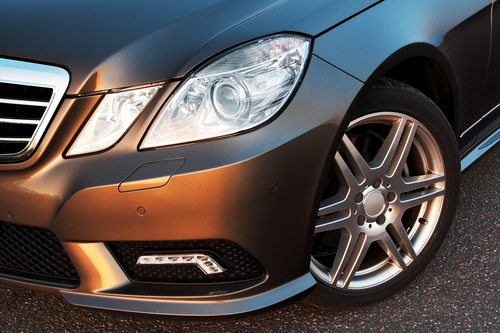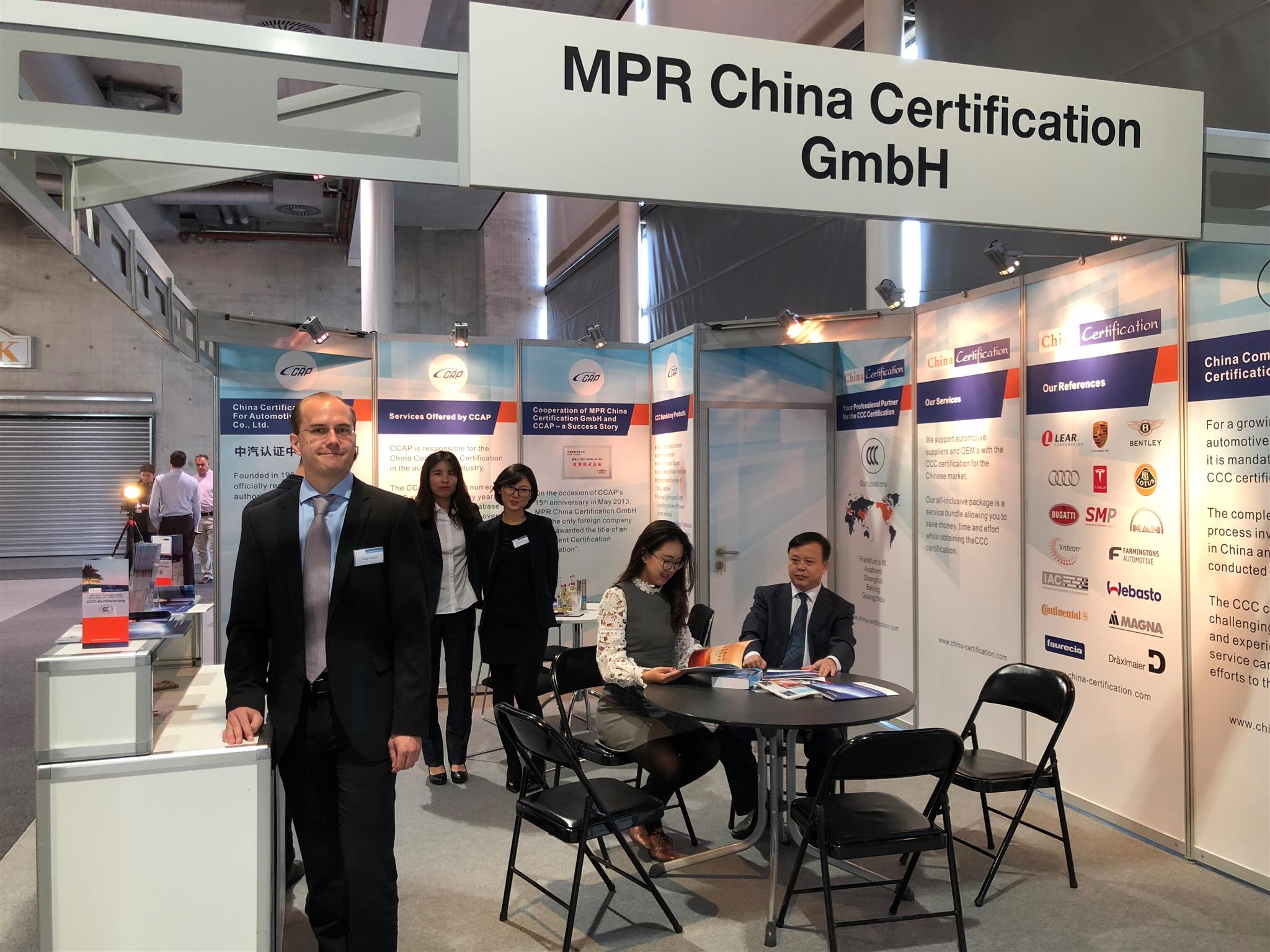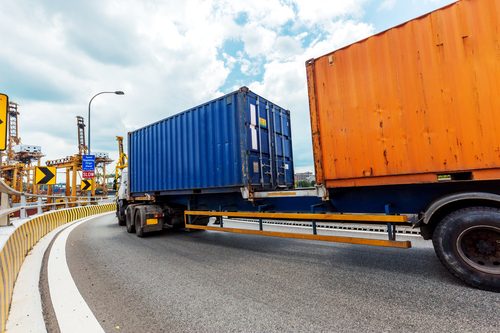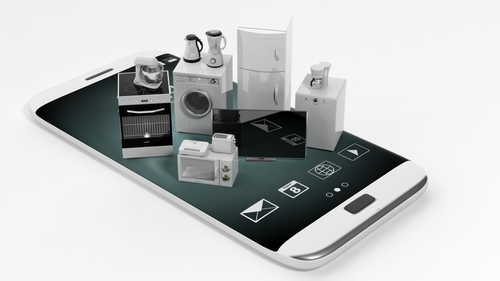Market for luxury vehicles in China remains stable
According to the Association of Chinese Automobile Manufacturers, sales of all new vehicles in 2018 fell slightly by 1.8 percent to a total of 25.42 million units. By contrast, the market for luxury vehicles remained stable and remains firmly in the hands of the German automobile manufacturers Mercedes-Benz, Audi and BMW. In the price segment over 300,000 Yuan (38,000 Euro), around 1.16 million vehicles were sold in 2018 and all well-known manufacturers of premium and luxury vehicles were able to report positive figures. The growth in this segment is attributable among other things to increased demand from younger clientele, the continuing good consumer climate and rising income. Manufacturers of luxury vehicles are currently offering autonomous category 3 and 4 cars, with a focus on assistance systems and driver support, as well as greater connectivity between their vehicles and the Internet and smartphones.
Currently, all major brands such as Audi, Mercedes-Benz, BMW, Jaguar Land Rover, Volvo, Lincoln and Infiniti have decided to lower their sales prices in China in response to the governments’ reduction in VAT. However, it is impossible to predict whether this price reduction will increase future sales and revenue. In February 2019, BMW (including MINI) was the leading brand in China with monthly sales of 44,582 units. Mercedes-Benz suffered a slight decline of 5.4 percent compared to the previous year. Audi reported an increase of 16.7 percent for the Audi A4L to 10,888 units in February 2019, deliveries of the Audi Q2L reached 1,337 vehicles.

In addition to the established manufacturers Mercedes-Benz, Audi and BMW, new brands are also pushing their way into the premium segment, SAIC-GM continues to hold the top position for the second-tier car brands in China. Other brands, often in a joint venture, that will offer luxury vehicles in the future include Dongfeng, Geely Holding Group and BYD Auto. Your company could also take advantage of its opportunities in the Chinese market. For the export of products in the automotive sector as well as other industries you need the obligatory China Compulsory Certification (CCC), for which we are happy to advise you.
For more information on how CCC certification may affect your company, or for more information about CCC certification in general, the process, and the associated costs, please visit our website and our News Section where you will find current updates twice a week.
Please do not hesitate to contact us for further details and consultation. You can contact us via e-mail, or call us (UK: +44 2071931135, Rest of Europe: +49 69 2713769150, US: +1 773 654-2673).
You can also check out our free CCC-Brochure, which can be downloaded right here as a PDF file or you consult our book (in English) “A Brief Guide to CCC: China Compulsory Certification”, which can be found directly hier on Amazon.
IAA 2019 – Review IAA Cars 2019 in Frankfurt
From September 12th to the 22nd, 2019 the 68th IAA Cars Trade Fair took place in Frankfurt, Germany. The IAA had over 800 automotive exhibitors including manufacturers, parts and accessories and electro-mobility. The fair is one of the biggest, most important automotive fairs in the world.
The fair was entitled “Driving Tomorrow” with the key topics in visionary concept vehicles, electro-mobility, alternative drives and smart cities.
MPR China Certification and China Certification Center for Automotive Products (CCAP) shared a booth at the fair.

During the press and professional visitors’ days (September 10-13) there was an active interaction with current clients and others interested in the CCC certification requirements and process.
For more information on how CCC certification may affect your company, or for more information about CCC certification in general, the process, and the associated costs, please visit our website and our News Section where you will find current updates twice a week.
Please do not hesitate to contact us for further details and consultation. You can contact us via e-mail, or call us (UK: +44 2071931135, Rest of Europe: +49 69 2713769150, US: +1 773 654-2673).
You can also check out our free CCC-Brochure, which can be downloaded right here as a PDF file or you consult our book (in English) “A Brief Guide to CCC: China Compulsory Certification”, which can be found directly hier on Amazon.
New GB standard published for Safety Specifications for Power-driven Vehicles
To ensure the effective implementation of the mandatory product certification system (China CCC Certification), on 28 August 2019, the TC11 technical expert group issued the technical resolution TC11-2019-01, the implementation of the Technical Requirements for the Safety of Motor Vehicle Operation of GB 7258-2017/XG1-2019.

The new requirements of the Technical Resolution are more specific and detailed:
- The maximum allowable loading weight of the traction rod trailer shall be less than or equal to the maximum allowable loading weight of the train.
- New report of concrete pump truck, truck crane and operation vehicle for oil field which total mass is lower than 1.2 times of the curb weight are required.
- Any passenger car larger than or equal to six meters with a passenger standing area, bus without a passenger station standing area and passenger car with a length more than nine meters shall have isolation facilities in its driving area to prevent others from invading the driving area. Isolation facilities should not affect safe driving and emergency evacuation of occupants.
- Flat plated truck shall not have inserted pile structure, groove, container lock and other devices. Flat plate truck and stake truck should not have lifting function or dump structure.
- The container shall be a closed dedicated container, and the vehicle shall be equipped with a loading and unloading or lifting machine to lift the container to the vehicle. Or can lift the dedicated container or frame to achieve the exchange of container.
The new regulation will be implemented from 1st August 2019 and will require the applicants to complete the changes within 12 months.
For more information on how CCC certification may affect your company, or for more information about CCC certification in general, the process, and the associated costs, please visit our website and our News Section where you will find current updates twice a week.
Please do not hesitate to contact us for further details and consultation. You can contact us via e-mail, or call us (UK: +44 2071931135, Rest of Europe: +49 69 2713769150, US: +1 773 654-2673).
You can also check out our free CCC-Brochure, which can be downloaded right here as a PDF file or you consult our book (in English) “A Brief Guide to CCC: China Compulsory Certification”, which can be found directly hier on Amazon.
Asia becomes largest growth market in the automotive sector
Asia will continue to be one of the largest growth markets in the automotive sector. Figures show that China and India together were responsible for an increase in global production in the automotive sector of 55 and 75 percent respectively in 2018 and 2019. China maintains its role as the world’s leading and largest automotive market despite a slight decline in new registrations, which grew by an average of 8.6 percent between 2012 and 2017 and currently correspond to 29.2 million new registrations annually. The number of newly registered vehicles in 2018 has increased by 4 percent and a plus of 3.5 percent is expected for 2019.

For the time being, India will maintain its position as number 4 on the global automotive market. New registrations on the subcontinent increased by 12 percent to 4.5 million units in 2018 and are expected to increase by 9 percent and 4.9 million units respectively this year. India is one of the leading countries for the production of vehicles and parts. Currently, around 24 million vehicles are produced annually and 3.6 million of these are exported. In addition to the growing passenger car sector, India is number one in the two-wheeled sector and number five for commercial vehicles.
Taken together, the sales figures of all emerging markets will increase by 13 billion US dollars by 2022 compared to 2017. Despite an impressive figure of more than 1.3 billion vehicles in use worldwide, there is a large imbalance between developed markets and countries with very low motorization rates. The lowest average number of vehicles per 1000 inhabitants is in the Africa/Middle East region with 60 vehicles followed by Asia with 100 and 200 in South America compared to more than 800 vehicles in North America and 600 in Western Europe. The figures for the three largest countries are also still at a low level with Brazil at 210 vehicles per 1000 inhabitants, China 120 and India 25. Benefit from the growth in India too. For the export of products in the automotive industry, you need an obligatory India certification according to the Automotive Industry Standard (AIS). We will be happy to provide you with comprehensive advice on AIS certification for India.
A Market Outlook – China’s Challenges to the Automotive Industry
For nearly forty years, the Chinese economy has been steadily rising, but now the mood seems to be clouding over. Although economic growth is expected to remain at around six percent in the coming years, this is a noticeable decline from the double-digit growth rates recorded to date. There are many reasons for this, neighbouring countries such as Bangladesh and Vietnam are becoming more and more competitive and at the same time production costs in China are rising, which have so far been low. Many provinces in China have fallen into debt in recent years and the days of costly and generous economic development programmes are over for the time being.
The car industry in China is also feeling the effects of a slowdown in the upswing. In 2018, for the first time since the nineties, fewer vehicles were sold than in the same period last year. Ford was hit hardest with a decline of 38 percent, followed by the PSA Group and market leader Volkswagen also reported a 2 percent drop. There were also declining figures for the Chinese manufacturers, but GAC, Geely and Roewe, for example, recorded an increase of up to 24 percent.

What could also slow down the growth of foreign car manufacturers in the future is the fact that Chinese brands have caught up significantly in terms of quality in recent years. New Chinese manufacturers are rigorously focusing on electromobility and infotainment, and especially in the electric car market the Germans are not playing a role in China. But it is precisely this segment that is strongly promoted by the government: Advantages for the approval of e-cars in conurbations, massive expansion of charging stations and free charging stations for customers at home.
In addition, many car buyers in China are first-time customers and have virtually no brand loyalty. If premium manufacturers such as BMW, Mercedes or Porsche manage to retain the wealthy middle class in the long term, nothing stands in the way of further growth. But Chinese customers are also very individual in their design. Without vehicles tailored to the local market, even established brands and manufacturers cannot make up ground. Only recently Jaguar Land Rover had to experience this painfully with 21 percent fewer cars sold. BMW and Mercedes, on the other hand, have tailored their 7 Series and S Class to the Chinese market, which continues to set the tone despite a short-term damper with more than 28 million vehicles sold per year. Therefore, the Chinese market will continue to play an important role for car manufacturers and suppliers in the future and could also be of interest to you! Would you like to export your products there? You need the obligatory China Compulsory Certification (CCC), for which we would be happy to advise you.
For more information on how CCC certification may affect your company, or for more information about CCC certification in general, the process, and the associated costs, please visit our website and our News Section where you will find current updates twice a week.
Please do not hesitate to contact us for further details and consultation. You can contact us via e-mail, or call us (UK: +44 2071931135, Rest of Europe: +49 69 2713769150, US: +1 773 654-2673).
You can also check out our free CCC-Brochure, which can be downloaded right here as a PDF file or you consult our book (in English) “A Brief Guide to CCC: China Compulsory Certification”, which can be found directly hier on Amazon.
New regulations in China on the RoHS standard

China RoHS allows producers and importers two new ways to meet the China RoHS standard from November 1, 2019. The Chinese RoHS, similar to the European Standard, is applied in China to ensure that products imported into China are free of hazardous substances.
Before the new regulation, RoHS certification in China was voluntary, now it is officially required to have RoHS for the following 12 product categories: refrigerators, freezers, air conditioners, washing machines, kettles, printers, copiers, fax machines, televisions, monitors, computers, radios and mobile phones, telephones.
The above 12 product categories must not contain any of these substances or their compounds that are banned in China: Lead, mercury, cadmium, hexavalent chromium compounds, polybrominated biphenyls and diphenyl ethers and other hazardous substances regulated by the Chinese government
There are two ways to obtain China RoHS certification. The first route is through the Chinese certification bodies, the second route for manufacturers is self-declaration with the Supplier Declaration of Conformity (SdoC). The approval process via the Chinese certification bodies will be similar to the China CCC certification: Initial inspection of the factory, type and sample testing; if the tests are passed, the declaration of conformity is issued. Annual audits for follow-up inspections are required for the China RoHS certificate to remain valid.
The declaration of conformity from suppliers can be obtained from the manufacturer himself or from an authorized representative registered in China. MPR China Certification can provide this service for you. RoHS test results from an independent third-party laboratory that can be located outside China are required for this type of RoHS certification.



